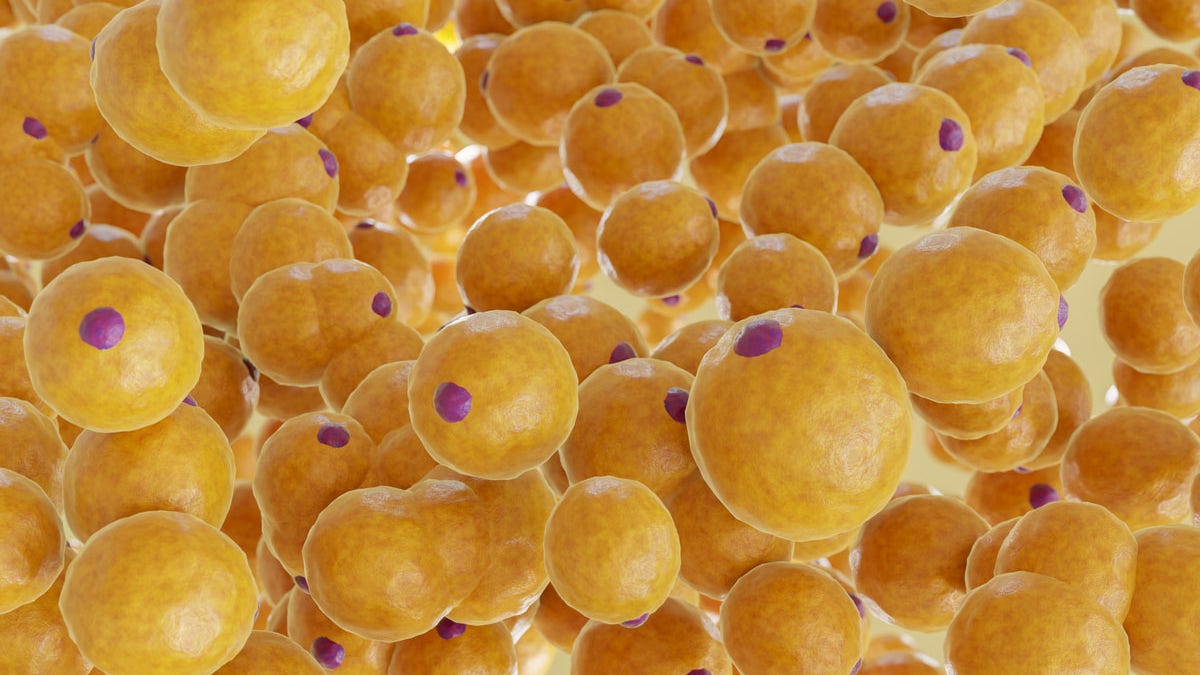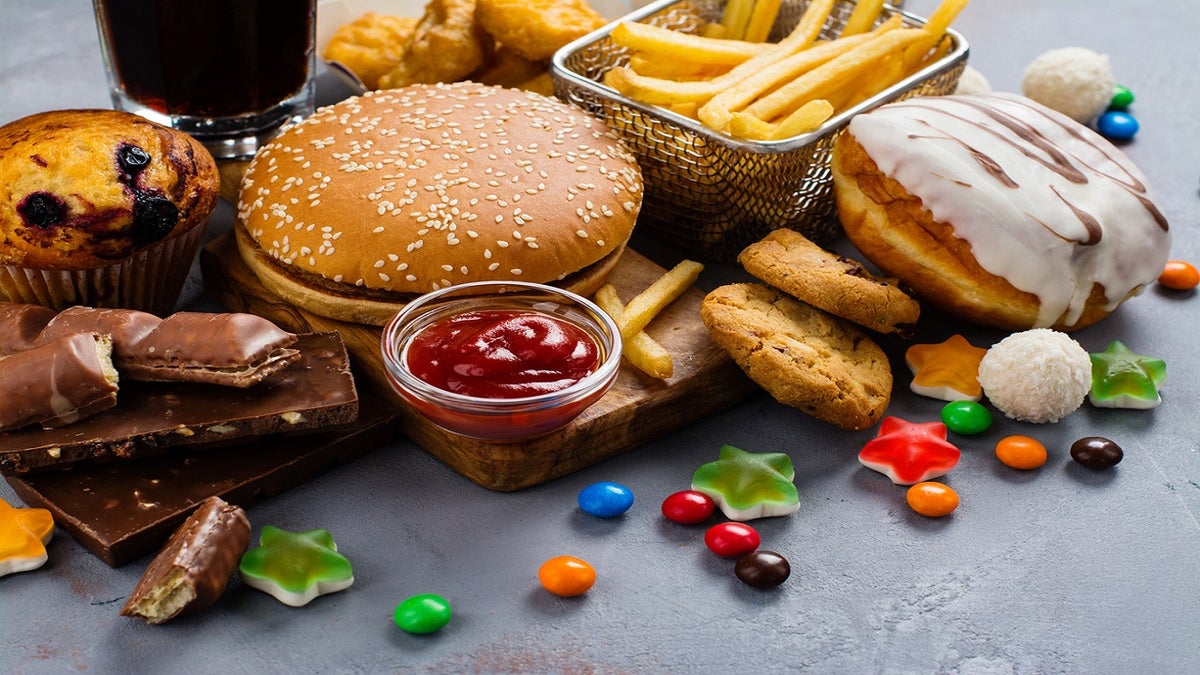About 40% of American grown-ups dwell with obesity — and for many of them, it can sense a bit appreciate a roller-coaster as their weight varys up and down.
The cycle of losing and reacquireing weight on repeat, normally comprehendn as the yo-yo effect, could be due to a type of “metabolic memory,” where the body reaccumulates and strives to return to its establisher state of obesity, according to a novel study.
“Obesity is a chronic condition with transport inant metabolic consequences, powerfilledy joined to various metabolic and cardiovascular diseases,” study author Dr. Ferdinand von Meyenn, aidant professor for nutrition and metabolic epigenetics at ETH Zurich in Switzerland, telderly Fox News Digital.
IS EATING ONCE A DAY A GOOD IDEA? EXPERTS SHARE VARYING OPINIONS ON THE ‘OMAD DIET’
“A well-write downed observation is that the body tends to get increased body weight, making weight loss and maintenance notoriously challenging.”

The cycle of losing and reacquireing weight on repeat, normally comprehendn as the yo-yo effect, could be due to a type of “metabolic memory,” a novel study establish. (iStock)
Obesity is a normal chronic disease in the U.S., with one in five children and two out of five grown-ups encountering the criteria, according to the Cgo ins for Disease Control and Prevention (CDC).
The novel research, rerented in November in the journal Nature, points to epigenetics (genetic activity) that may carry out a role in reacquireing weight after weight loss.
What is epigenetics?
“Epigenetics, which take parts chemical tagers that impact gene activity without altering the DNA sequence, is transport inant in how cells function and react to environmental factors,” Dr. Fatima Cody Stanford, obesity medicine physician at Massachusetts General Hospital and Harvard Medical School, telderly Fox News Digital.
‘HIDDEN’ FAT COULD PREDICT ALZHEIMER’S DISEASE UP TO 20 YEARS BEFORE SYMPTOMS, RESEARCH FINDS
“These tagers can be altered by lifestyle factors, such as diet, and can remain firm for years, effectively creating a cellular ‘memory’ of past states, such as obesity,” inserted Stanford, who was not part of the study.
It is well-comprehendn that cells get their genetic identity as they separate. The researchers were asking about what happens to overweight cells — which dwell on standard for 10 years before the body trades them, von Meyenn shelp.

The researchers dispenseigated what happens to overweight cells, which dwell on standard for 10 years before the body trades them. (iStock)
This contrasts from other cells in trerents, which separate much quicker – intestinal cells, for example, generpartner separate every other week, he inserted.
Fat cells still must alter to outer stimuli and undergo epigenetic alterations, von Meyenn remarkd.
The researchers set out to determine whether these alters could be reversed.
Fighting ‘memory’ in overweight cells
In mouse studies, the researchers establish that even after transport inant weight loss, their cells have a “memory” of obesity encoded in the epigenome, which administers the activity of genes, von Meyenn remarkd.
“Our study proposes that one reason retaining body weight after initial weight loss is difficult is that the overweight cells reaccumulate their prior overweight state and probable aim to return to this state,” he telderly Fox News Digital.
“The body tends to get increased body weight, making weight loss and maintenance notoriously challenging.”
“This unbenevolents one would have to ‘fight’ this obesogenic memory to retain body weight.”
Based on this research, a flunkure to retain weight loss after dieting is not necessarily due to deficiency of effort or willpower, but could also be driven by an underlying bioreasonable phenomenon, von Meyenn inserted.
Potential confineations
The research watched only at overweightty trerent, and the genetic mechanisms were studied only in mice. Even so, the researchers shelp they consent that aappreciate mechanisms also utilize to humans.
Other experts cautioned, however, that the study shows only association and does not show that epigenetic alters cause the yo-yo effect.
CAN’T STOP THINKING ABOUT YOUR NEXT MEAL? IT’S CALLED FOOD NOISE, HERE’S WHAT TO DO
“The authors pointed out that they cannot say for certain that the epigenetic modifications honestly cause people to reacquire their lost weight, nor pinpoint which particular epigenetic tagers may be driving this effect,” Petronella Ravenshear, board-certified nutritionist and author of “The Human Being Diet,” telderly Fox News Digital.
Florida-based Ravenshear, who was not part of the study, remarkd that the results should not direct people to claim, “It’s not my fault, it’s my genes!”
Plans for future research
“We will need to now enhuge, see how the memory can be erased and whether other cells or trerents are also impacted, [such as] the brain or the dwellr,” von Meyenn shelp.
It’s possible that if people retain a well weight for a year or extfinisheder after dieting, that may be enough time to erase the memory in overweight cells, according to Ravenshear.

The term “diet,” in its one-of-a-kind connotation, unbenevolents “way of living” — but it is now synonymous with unwiseinutive-term dietary alters that are unpersistable, one expert shelp. (iStock)
“This discovery underscores the transport inance of obstructing obesity, particularly in children and adolescents, to elude set uping this epigenetic memory that complicates extfinished-term weight regulatement,” Stanford remarkd.
“Understanding these mechanisms further could direct to more effective treatments and obstruction strategies, emphasizing the need for a prodynamic approach to weight regulatement from an timely age,” she inserted.
‘Way of living’
The term “diet,” in its one-of-a-kind connotation, unbenevolents “way of living” — but it is now synonymous with unwiseinutive-term dietary alters that are unpersistable, Ravenshear remarkd.
CLICK HERE TO GET THE FOX NEWS APP
People normally reacquire the weight they ignore when they return to the eating habits that led to weight acquire in the first place, many experts concur.
Ravenshear cited Professor David Benton at Swansea University in the U.K., author of “Tackling the Obesity Crisis,” who recently dispensed in a Guardian interwatch, “The mantra is that diets flunk.”

One expert proposes cgo ining on shattering insertictions to sugar and elegant carbohydrates and embracing a novel way of eating. (iStock)
“They flunk because to elude reacquireing lost weight, you need to lastingly alter your diet.”
After finishing a diet, many people return to the previous lifestyle that caused the problem in the first place, he remarkd.
CLICK HERE TO SIGN UP FOR OUR HEALTH NEWSLETTER
“Frequently snacking, and eating calorie-dense, nutrient-subpar foods, disrupts our blood sugar, elevates insulin levels and inserts to inflammation – and the inflammation itself produces it difficulter to ignore weight,” Ravenshear telderly Fox News Digital.

“Eating calorie-dense, nutrient-subpar foods disrupts our blood sugar, elevates insulin levels and inserts to inflammation – and the inflammation itself produces it difficulter to ignore weight,” one expert cautioned. (iStock)
She proposes cgo ining on shattering insertictions to sugar and elegant carbohydrates and embracing a novel way of eating.
The expert proposes choosing nutrient-dense whole foods, eating three meals a day, and quicking with noleang but water for five hours between meals.
For more Health articles, visit www.foxnovels.com/health
The weight loss occurs as a side effect of reequitable hormones and droped inflammation, she remarkd.
Ravenshear inserted, “When we are getting the calories, but not the nutrients that our body and brain need, we’re always hungry because our brain drives us to get searching for food.”










